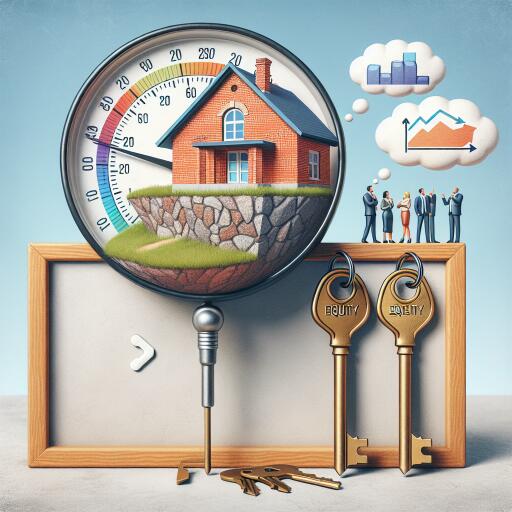Understanding the Future of Home Equity Rates
For years, the Federal Reserve has maintained high interest rates to control inflation and manage spending across the economy. This approach has cascaded into various consumer rates, elevating the cost of borrowing through loans and financial products significantly.
Despite the broader trend of rising costs, home equity loans and lines of credit (HELOCs) remain a relatively affordable option. With the average homeowner sitting on over $300,000 of equity, of which approximately $206,000 is considered tappable, leveraging home equity can be an attractive financial strategy.
Yet, there is potential for home equity loan and HELOC rates to decline further. This outcome hinges on specific changes within the economy. If you’re contemplating accessing your home equity, understanding these shifts can help gauge when rates might become more favorable.
What Needs to Happen for Rates to Drop?
A slowdown in the economy is a prerequisite for a decline in interest rates across all financial products. According to Lindsey Harn, a seasoned real estate agent, an economic downturn generally results in lower interest rates.
Critical to this slowdown would be a decrease in consumer spending and a cooling job market, both of which have shown robust figures recently. With unemployment rates hovering around 4% and substantial job additions monthly, adjustments are necessary for shifts in home equity rates.
David Kakish, a mortgage expert, notes, “A softer job market could prompt the Federal Reserve to modify its interest rate policies, which in turn, could lower home equity loan and HELOC rates.”
Once the economy shows signs of slowing, with reduced inflation towards the Fed’s target of 2%, we can expect a consequential easing of the federal funds rate. This adjustment would directly impact the prime rate, which is closely tied to HELOCs, and subsequently, lead to reduced interest rates for fixed-rate home equity loans.
Anticipating the Timing and Effect
Predicting the exact timeline for these changes is challenging. The Federal Reserve’s strategy and pace of rate adjustments will play a critical role. Recent forecasts suggest that whilst a short-term rate cut might be on the horizon, more significant reductions could unfold by 2025.
For home equity borrowers, this means a gradual decrease in rates, potentially lowering HELOC costs by 1.25% between now and December 2025.
Proactive Steps for Homeowners
Waiting for rates to drop isn’t the only strategy for homeowners looking to access their equity. Enhancing your credit score is a fundamental step toward securing a lower interest rate.
“A strong credit score is critical for obtaining favorable rates,” states Jay Sharifi, a financial advisor.
Choosing a longer loan term or a smaller loan amount can also influence the rates offered to you. Christina McCollum, a mortgage industry expert, notes, “Fixed rates with longer terms generally present lower rates, especially at lower loan-to-value ratios.”
Last but not least, comparing offers from different lenders can make a significant difference. With rates and terms varying across institutions, thorough comparison can ensure you secure the most competitive rate available.
Conclusion
As the economy evolves, so too will the rates for home equity loans and HELOCs. Keeping an eye on economic indicators and maintaining a strong financial profile can position you to take advantage of lower rates when they occur. In the meantime, exploring your options and understanding the factors at play will empower you to make informed decisions about leveraging your home equity.
